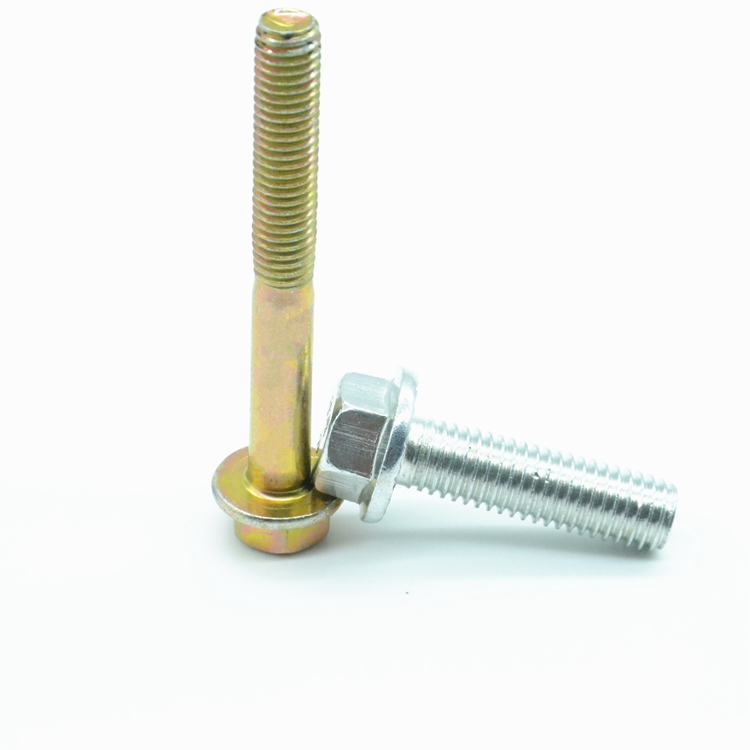Innovative Fastening Solutions from Leading Shock Absorbing Bolt Manufacturer in the Industry
Desemba . 26, 2024 03:51 Back to list
Innovative Fastening Solutions from Leading Shock Absorbing Bolt Manufacturer in the Industry
The Evolution and Impact of Shock Bolt Technology in Modern Industries
In various engineering fields, the quest for efficiency, reliability, and safety has led to the innovation of specialized components. Among these, shock bolts have emerged as crucial fixtures, particularly in areas subjected to dynamic loads and vibrations. A shock bolt, designed with the capability to absorb and dissipate energy during impact or shock loading, plays an essential role in ensuring the integrity of structures and machinery. This article explores the development, applications, and benefits of shock bolts, emphasizing their importance in contemporary manufacturing and construction.
Understanding Shock Bolts
Shock bolts are engineered fasteners designed to absorb significant amounts of energy, reducing the risk of failure in critical applications. Traditional bolts can become stressed and fail under sudden impacts; however, shock bolts are crafted with materials and designs that allow them to deform in a controlled manner. This property helps in energy dissipation, minimizing the shock transmitted through the construction or machinery.
The materials utilized in shock bolts are often high-strength alloys or specially formulated polymers. The engineering of these bolts includes features such as thread engagement length, surface treatments, and unique geometrical designs to withstand cyclic loading and reduce the chances of fatigue failure. As a result, shock bolts are an invaluable element in environments where equipment experiences rapid fluctuations in load—like construction sites, aerospace, and automotive industries.
Applications in Various Sectors
1. Aerospace Industry In aerospace engineering, weight savings and strength are paramount. Shock bolts are extensively used in aircraft assembly to secure components that experience high levels of vibration and shock during operation. The failure of these bolts can have catastrophic consequences; therefore, the advancement of shock bolt technology directly correlates with enhanced safety in air travel.
2. Automotive Sector Modern vehicles are subjected to numerous forces during operation, including bumps on the road and sudden stops. Shock bolts are employed in critical areas such as engine mounts and suspension systems to absorb shock loads, thereby improving vehicle performance and passenger comfort while extending component life.
3. Construction and Civil Engineering Buildings and other structures must withstand not only static loads but also dynamic forces, whether from wind, earthquakes, or heavy traffic. Shock bolts are pivotal in securing structural elements and connections, particularly in high-risk zones. Their ability to absorb shock can mitigate damage during seismic events, potentially saving lives and reducing repair costs.
shock bolts company

4. Marine Applications In marine environments, vessels face constant vibrations from waves and mechanical operations. The adoption of shock bolts in shipbuilding helps to secure critical systems and components, ensuring they remain functional and intact even in harsh conditions.
The Benefits of Shock Bolts
The benefits of integrating shock bolts into various applications are manifold
- Increased Reliability The energy-absorbing properties of shock bolts reduce the likelihood of mechanical failure, enhancing the overall reliability of machines and structures.
- Extended Lifespan By mitigating the effects of shock and vibration, these bolts contribute to the longevity of components, reducing maintenance costs and downtime.
- Improved Safety The proper use of shock bolts can significantly lower the risk of accidents caused by mechanical failure, thus safeguarding both personnel and equipment.
- Cost-effectiveness Although shock bolts may involve a higher upfront cost, the long-term savings associated with reduced maintenance and replacement can be substantial.
Conclusion
The evolution of shock bolt technology reflects the growing demand for enhanced performance and safety across various industries. By embracing innovations in materials and engineering, manufacturers and engineers can leverage the unique advantages provided by shock bolts. As industries continue to face challenges such as increasing operational demands and the need for sustainability, shock bolts have established themselves as a vital component of modern engineering solutions, bringing efficiency and reliability to systems that are as complex as they are critical. The ongoing research and development of shock bolt technology promise even greater advancements in the future, potentially revolutionizing how we approach the design and implementation of mechanical systems across diverse fields.
Latest news
-
Reliable Axle Nuts Supplier | High-Quality Automotive Parts
NewsAug.19,2025
-
Premium Wire Bolts Suppliers | Durable & Reliable Fasteners
NewsAug.18,2025
-
Leading Metric Wood Screw Companies & Manufacturers
NewsAug.17,2025
-
Top Wire Bolts Suppliers - Quality & Durable Fasteners
NewsAug.15,2025
-
Trusted Wire Bolts Company | Quality Fasteners Supplier
NewsAug.14,2025
-
Reliable Wire Bolts Suppliers & Manufacturers for Global Needs
NewsAug.13,2025
